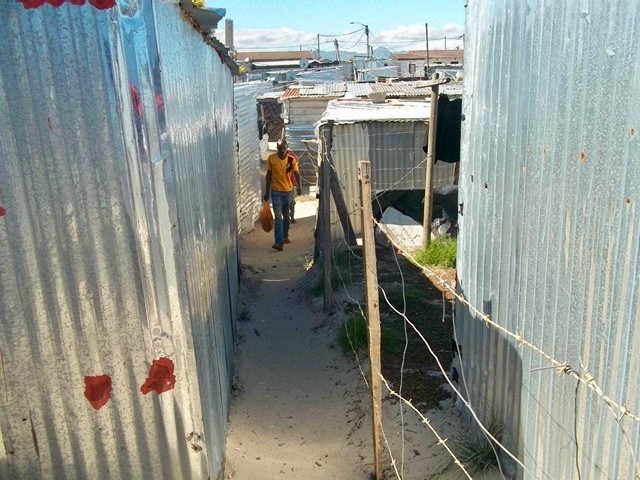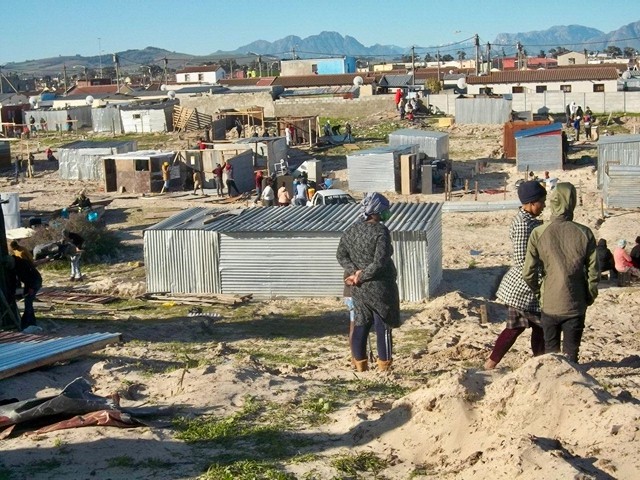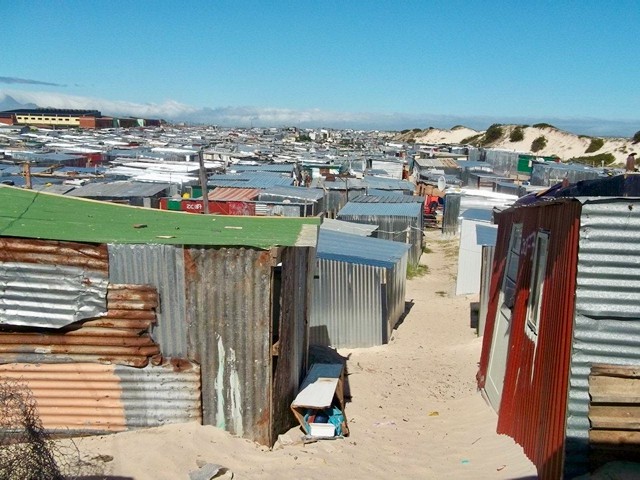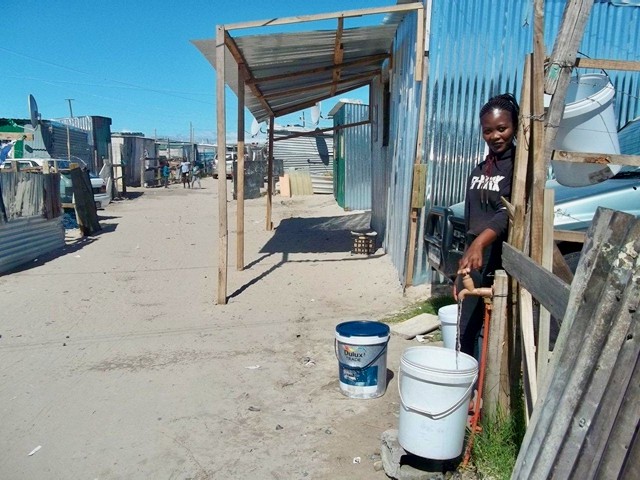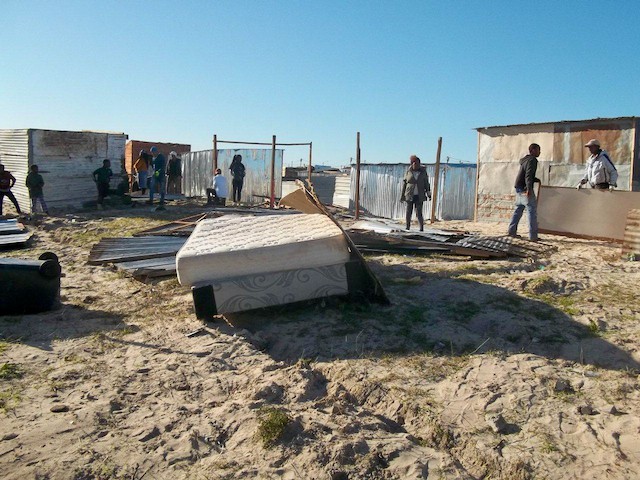Living in Covid village in Cape Town
City says occupation is illegal and it has no funds for such unplanned settlements
A man walks up one of the narrow lanes in Covid Vllage on Easter Weekend 2021. Photos: Vincent Lali
It is difficult to navigate a way through Covid Village in Mfuleni, a land occupation in Cape Town started during the hard Covid-19 lockdown last year.
Shacks are closely clustered and haphazardly built, with little space between them for footpaths. Some shacks are on shifting, sandy slopes, dangerously close to a canal bordering the informal settlement on the Westbank side.
There are shacks made with shiny zinc sheets and others built with old, rusting materials.
Community leader Lindile Manyana says people who used to rent shacks belonging to their landlords bought new building materials when they relocated here.
“The rusty, old shacks,” he says, “belong to residents who used to rent spaces before they occupied the land. They just dismantled and reassembled them here.”
Early days in Covid Village when 600 former backyarders first moved onto the land.
Manyana said about 600 former backyarders moved onto the land during the hard lockdown last year.
Law enforcement officers destroyed the shacks and the land occupiers protested, blocking roads, stoning buses and cars, including municipal vehicles.
But the authorities lost the battle. After that people flocked to the land from numerous areas. “We didn’t even know each other,” says Manyana.
There are now thousands of households.
Today there are thousands of households in Covid Village.
“We can’t go back to our landlords now, because we owe them money and they now rent their places to other people anyway,” says Manyana.
But Manyana says the land occupiers would be willing to be relocated to land with standpipes, communal toilets and electricity.
The community raised funds to install some taps beside two wide footpaths.
The settlement has suffered several fires, and at least one person died in a fire.
“When fires break out, we use sand to try to extinguish them because some shacks are located far from the communal water taps,” says Manyana.
Some families who live closest to the formal housing area have made illegal electricity connections, using the streetlights.
Without toilets, people use buckets, emptying them on vacant land or in the canal.
People dump their rubbish on the perimeter of the settlement where the City of Cape Town collects it. But no-one collects rubbish in the middle of the settlement.
“Dirt is scattered among our shacks,” says Manyana.
Sinazo Thuswa collects water for her household.
Onke Mbiza, 25, lives with his girlfriend in a zinc shack. The walls are partially covered with ceiling boards; the floor is a piece of thick black plastic. He has a tattered sofa, old cupboards, a bed and a TV stand.
The couple used to rent a backyard shack for R550 in Esibaneni, Mfuleni. Mbiza used to work for a construction company in Ottery, earning R1,500 fortnightly, of which he’d send R400 to R500 to support his five-year-old son in the Eastern Cape. He said he used to borrow money from loan sharks to get by. When the construction company shut down with the pandemic, he moved onto the land.
At night, Mbiza makes the 10-minute walk to fetch water from one of the community taps. “At night there are no long queues, and then the water comes out fast and in large amounts,” he said.
Mayco Member for Human Settlements Councillor Malusi Booi said an existing court order prevents the unlawful erection of structures on the land.
“Numerous newly established communities are demanding services but currently the City is unable to cater for these unplanned settlements as existing recognised informal settlements are prioritised on the basis of available resources.”
“Assessments of all unlawfully occupied areas are being undertaken and will continue to be undertaken across the metro,” said Booi.
New arrivals at Covid Village in July 2020.
Support independent journalism
Donate using Payfast

Next: Students unable to pay rent sleep outside college gates
Previous: Activists sceptical about Home Affairs’ ability to move refugee process online
© 2021 GroundUp. This article is licensed under a Creative Commons Attribution-NoDerivatives 4.0 International License.
You may republish this article, so long as you credit the authors and GroundUp, and do not change the text. Please include a link back to the original article.
We put an invisible pixel in the article so that we can count traffic to republishers. All analytics tools are solely on our servers. We do not give our logs to any third party. Logs are deleted after two weeks. We do not use any IP address identifying information except to count regional traffic. We are solely interested in counting hits, not tracking users. If you republish, please do not delete the invisible pixel.

